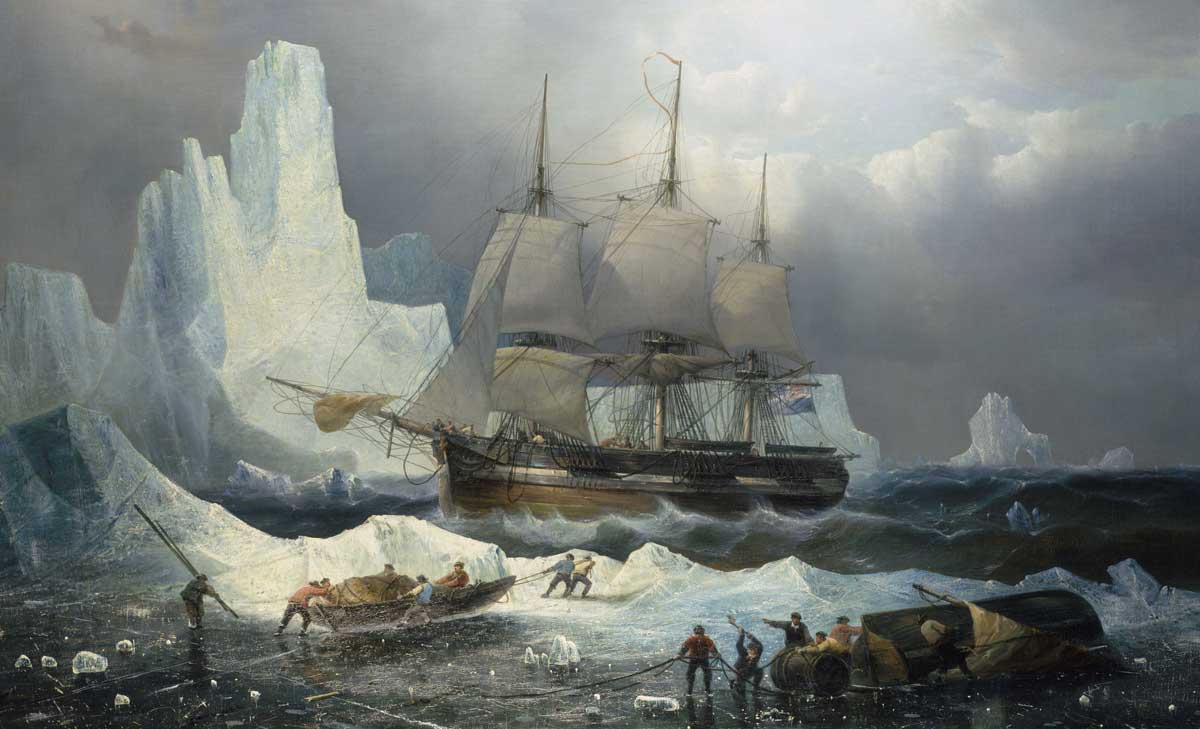Dead Letters | History Today - 4 minutes read

Interest in the fate of Sir John Franklin’s 1845 doomed expedition to find the Northwest Passage is enjoying something of a renaissance, thanks in part to its sensational dramatisation in the television series The Terror. Of the 139 men aboard HMS Erebus and HMS Terror who disappeared in the ice, only 30 bodies have been found. We know Franklin died in July 1847, but what happened to the rest of his crew, and what exactly led them to catastrophe, is still being pieced together from the little evidence available.
May We Be Spared to Meet on Earth does not seek to solve this mystery. The book collects nearly 200 annotated letters written by members of the expedition to friends, relatives and professional patrons. As the editors (three Franklin enthusiasts and, in Mary Williamson, a descendant of Franklin) explain, the book aims to give its reader an ‘uninterrupted experience of their collective testimony’.
The book largely succeeds in this. We meet each of its ‘authors’ as human beings wrapped up in their own particular interests and concerns. Franklin worries about the ‘base & ceaseless intrigues’ circulating about his controversial legacy as governor of Tasmania (‘my present appointment is considered by all such persons as having given the lie to all the statements of the Colonial Office’); Henry Le Vesconte, Second Lieutenant aboard Erebus, dreams of the woman he is ‘more than half in love with’, Henrietta LeFeuvre; and Charles Osmer rejoices that his appointment as purser is ‘the first step on the ladder’ of promotion. Others are more concerned about private affairs: Assistant Surgeon Harry Goodsir frets about the price of his equipment, while ice master James Reid’s poignant letters to his wife radiate trust and affection: ‘Keep yourself easy about me. Trust wee [sic] will meet Again.’ Social and naval historians will be particularly interested in this book, which depicts every aspect of a naval expedition from planning through to sailing: the scrambling for places aboard, the preparations for departure and the inevitable delays and frustrations.
Yet there is also an inevitable sense of incompleteness, a lingering feeling that many important details happen in the negative space around the evidence that survives. As Michael Palin writes in his foreword, ‘the most eerie and haunting aspect of Sir John Franklin’s expedition to the Northwest Passage is the sudden and complete silence which followed the departure from Greenland’. The departure took place in July 1845 and the silence it left follows the gossipy letters that make up the first six chapters of the book. The final chapter gives voice to the recipients of those letters. ‘And now dearest love’, Lady Jane Franklin wrote to her husband in 1853, ‘once more may Heaven bless & preserve you – May we be united again in time & for eternity – a blessed eternity!’ The letter was returned unread; John Franklin had been dead nearly six years when it was written.
Hope was all the survivors had left in the face of increasingly overwhelming evidence of disaster. Having made the acquaintance of these men throughout this book, readers can appreciate the devastation, the despair that must have taken hope’s place in the hearts of those whose loved ones never would come home.
May We Be Spared to Meet on Earth: Letters of the Lost Franklin Arctic Expedition
Edited by Russell A. Potter, Regina Koellner, Peter Carney and Mary Williamson
McGill-Queen’s University Press 504pp £29.99
Buy from bookshop.org (affiliate link)
Jacqueline Reiter is the author of The Late Lord: The Life of John Pitt – 2nd Earl of Chatham (Pen & Sword, 2017).
Source: History Today Feed